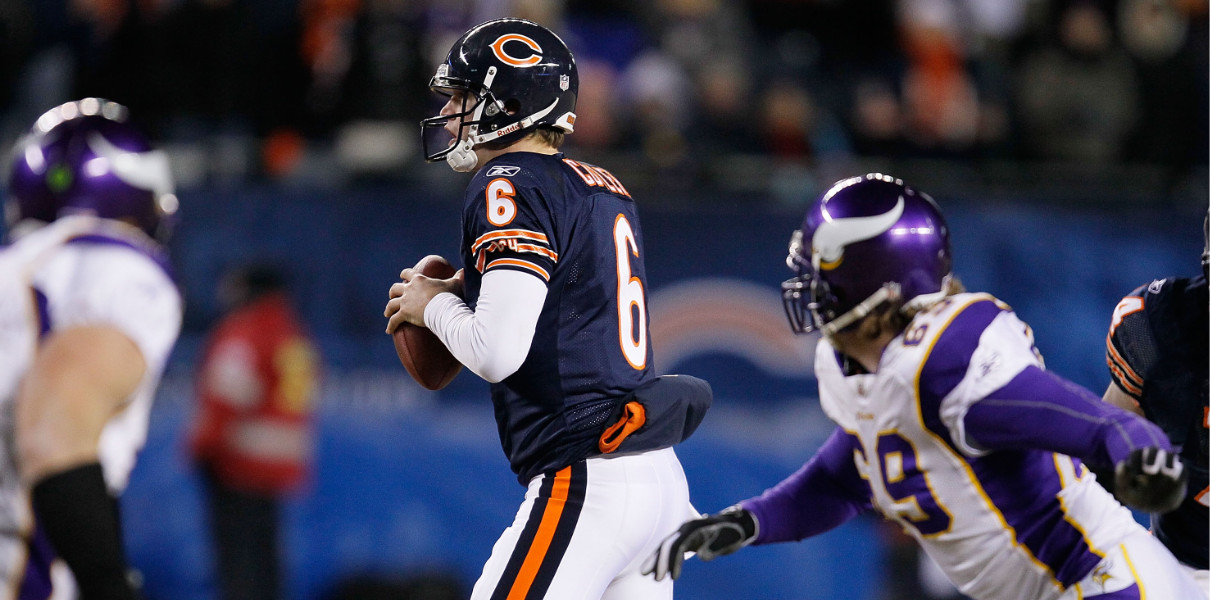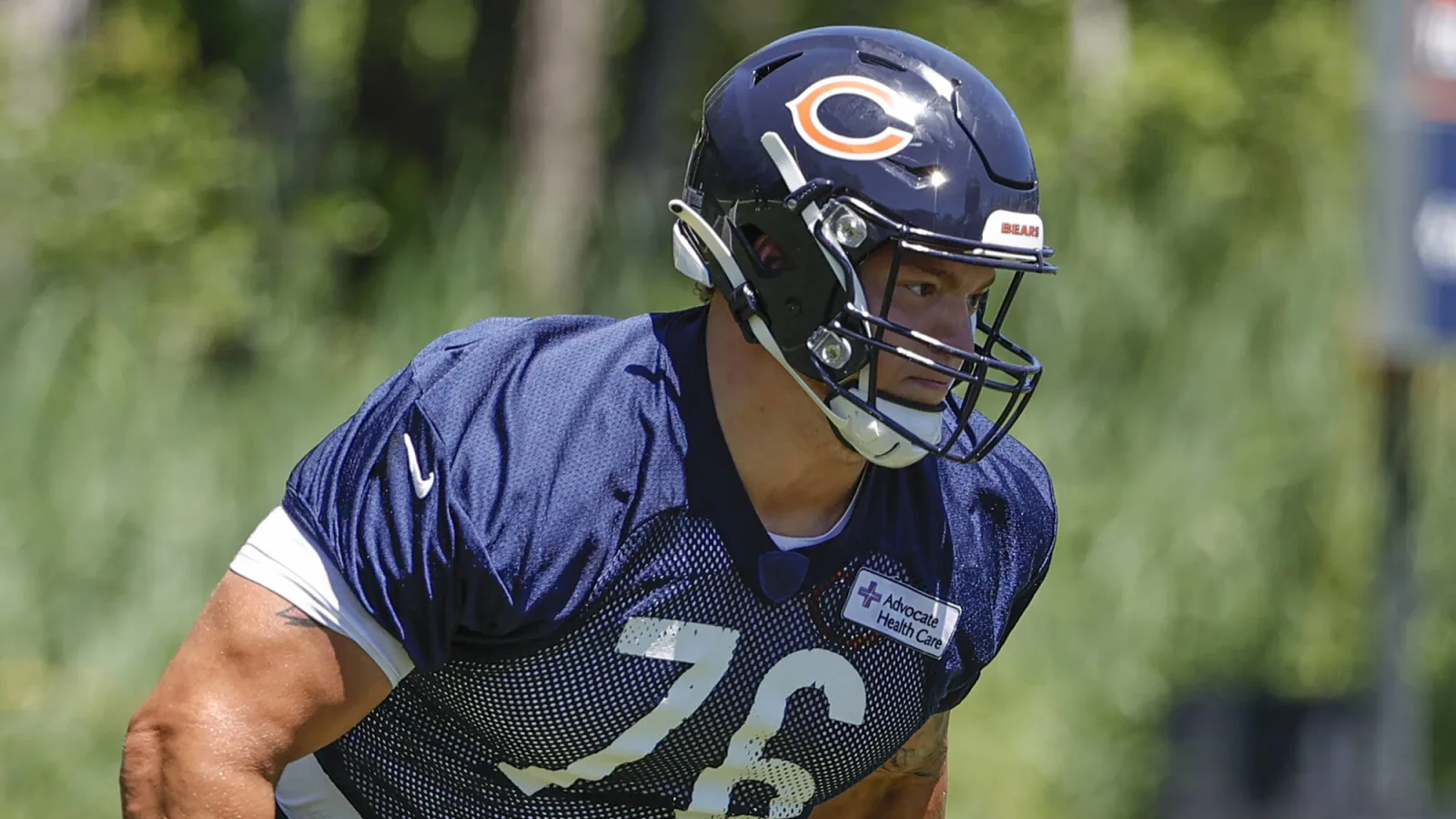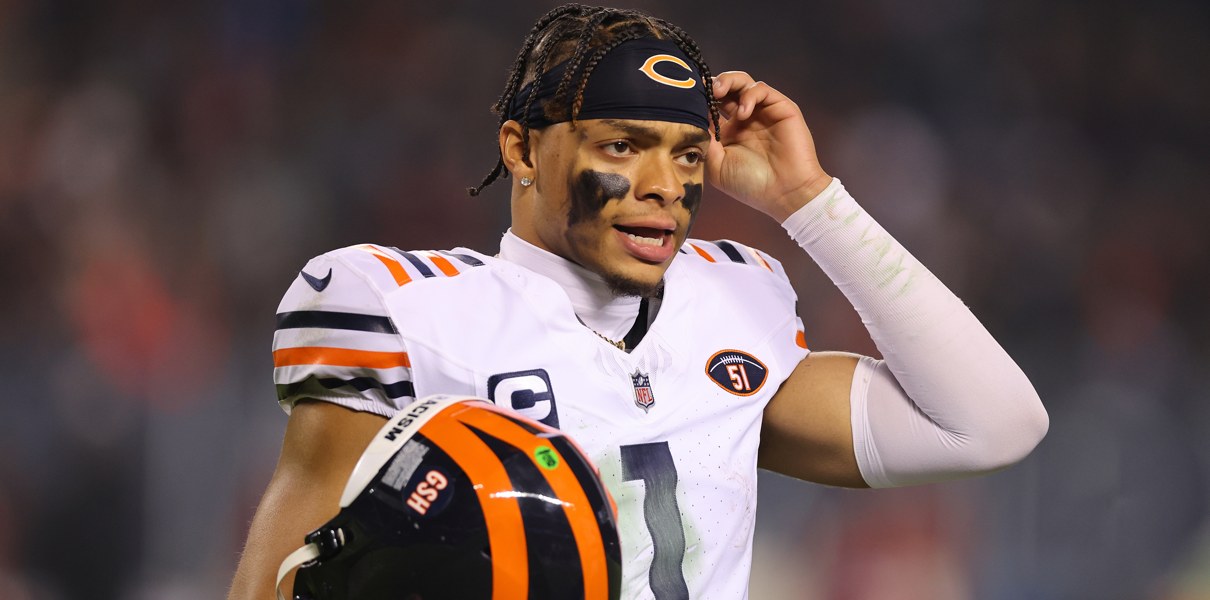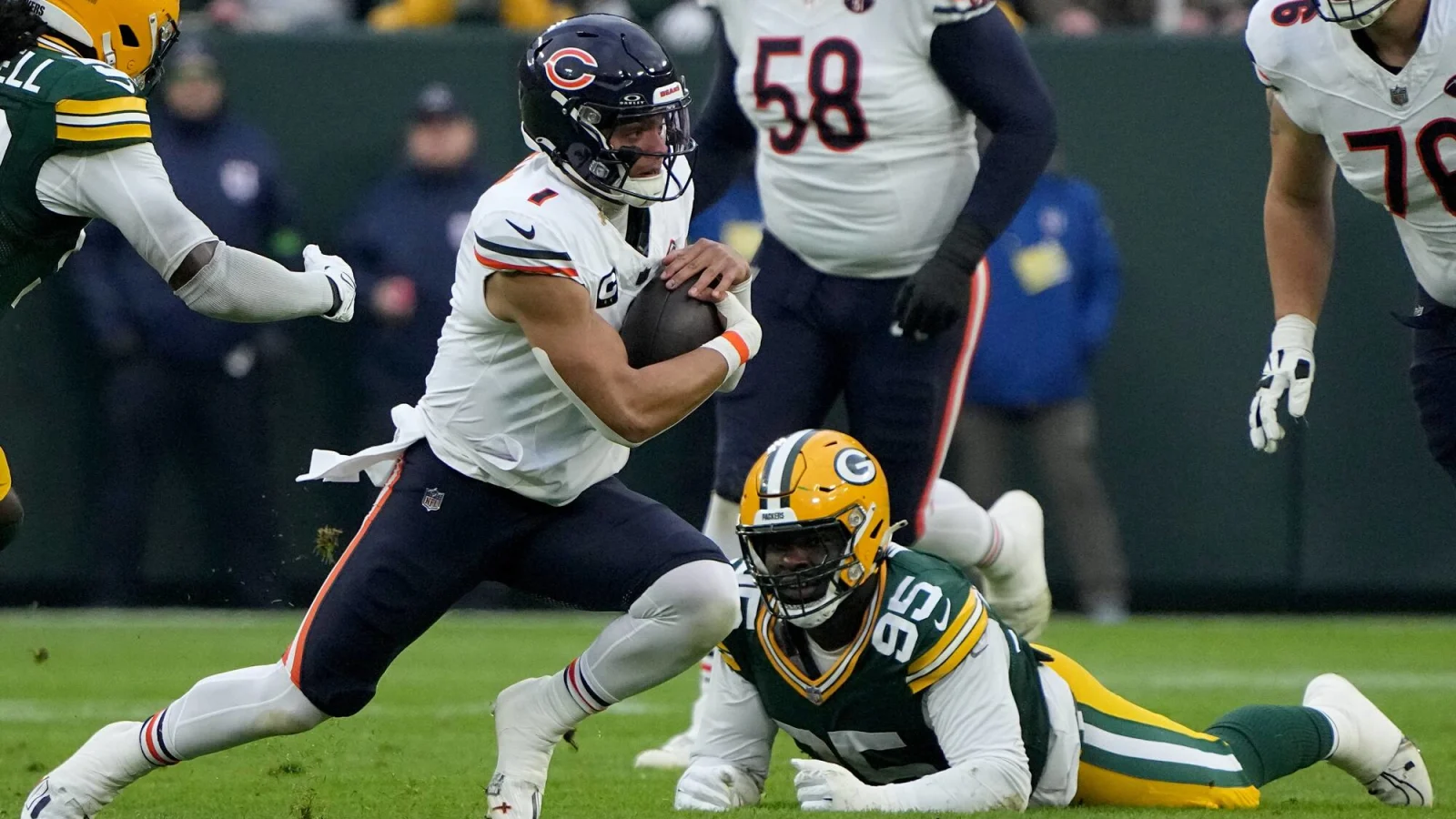
The smile on Matt Eberflus’ face told the tale.He’d been asked Monday if he followed what happened in the Green Bay-Kansas City game with two non-pass interference calls against the Packers at the end.Bears tight end Cole Kmet had seen them, as well, and came to an obvious conclusion about whether he thought they were DPI penalties.

“I did, on both of them, I did,” he said.Being a tight end who catches passes, of course Kmet probably has a built-in bias against the defense. And it was Green Bay on defense, besides. He has bias against them as both a Chicago area fan and a Bears player.Another situation like those non-calls occurred in the Monday night game on what seemed an obvious pass interference against Cincinnati.
The DPI and OPI controversies keep rolling on in the NFL.
Rather than get himself into trouble somehow Eberflus, in acknowledging he saw the calls, took the high road and explained instead why pass interference penalties keep occuring or don’t get called, and perhaps why they’re simply tough to call.
“It’s the timing,” the Bears coach said. “It takes longer to get there. It’s the timing of the DBs. He’s got to have poise at the catch point. So that takes some discernment at the end.
“You got to be able to judge the ball, where the player is running to and where that reception area is, and be able to time your jump, your punch to bust that triangle that he’s (the reciever) trying to create with the ball. “It’s all about timing. A lot of that is instincts. You can work on it as a coach, but some of the real good ones have it. They have the instincts to time their jump when the ball meets the reception area.”
The biggest Bears penalty problems haven’t been pass interference as much as they have been their own false starts and also the officials calling games one way.The Bears have suffered from the fewest penalty flags against opponents in the NFL.If the “S” in Eberflus’ HITS principle stands for smart play, it seems the Bears must be playing against a bunch of geniuses. Or maybe the Bears simply need to start complaining more about officials calling one-sided games.There have been only 51 penalties against opponents in Bears games. The next-lowest total is 56 against Kansas City’s opponents.By comparison, Minnesota has benefited from 87 flags against its opponents, Green Bay 71 and Detroit just 62.
When you consider the Bears have been penalized the ninth-most times in the league at 80, their penalty ratio is minus-29.
The 395 yards walked off against Bears opponents is the lowest total in the league by 67 yards.
As has been reported last week, the Bears have had more penalties in nine of their last 10 games than opponents, and the one game when they didn’t was a tie in penalties called.
They have a net yards ratio of minus-304 penalty yards. No one is within 116 yards of their bad net penalty yards ratio.
“Yeah, you want to eliminate those,” Eberflus said of all the penalties. “And certainly there’s many of them that you disagree with, of course, that’s always the case. But the penalties that were accepted against us, obviously the things you want to control are the things that are pre-snap. The false starts and we’ve done a better job of that the last couple of weeks, and we’ve got to continue to do a better job of that.
“We’ve been emphasizing that for the last several weeks, and we’ve got to continue to do a better job there.”The Bears had been first in false starts but now have dropped down to fourth with 20.They’re only 17th in defensive pass interference flags with six, although they are tied for second with four illegal contact penalties.”So anytime you can eliminate those, a lot of times the DPIs and the contact down the field, sometimes there’s a questionable and you’ve got to take those and move to the next set of downs and execute again,” Eberflus said. “But yeah, those are the ones you want to talk about.”People will talk about penalties all the time.When you have penalty numbers like the Bears have, someone better talk about it a lot and then do something about it.



Be the first to comment